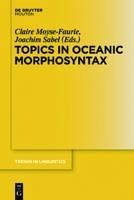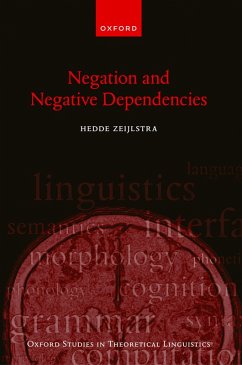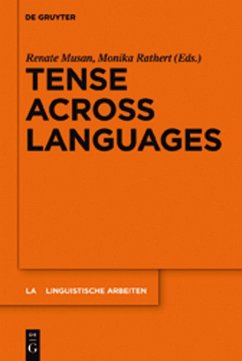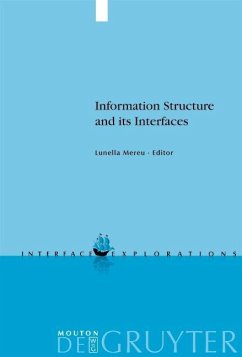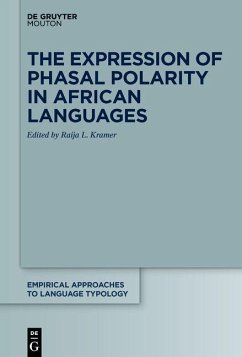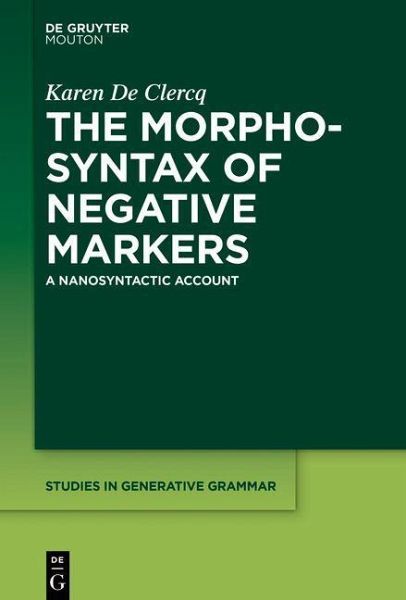
The Morphosyntax of Negative Markers (eBook, PDF)
A Nanosyntactic Account
Versandkostenfrei!
Sofort per Download lieferbar
111,95 €
inkl. MwSt.
Weitere Ausgaben:

PAYBACK Punkte
56 °P sammeln!
This book applies the tools of nanosyntax to the natural language phenomenon of negation. Most work on negation is concerned with the study of sentence negation, while low scope negation or constituent negation is hardly ever systematically discussed in the literature. The present book aims to fill that gap, by investigating scopally different negative markers in a sample of 23 typologically diverse languages. A four-way classification of negative markers is argued for and it is shown how meaningful syncretism patterns arise across those four groups of negative markers in the language sample i...
This book applies the tools of nanosyntax to the natural language phenomenon of negation. Most work on negation is concerned with the study of sentence negation, while low scope negation or constituent negation is hardly ever systematically discussed in the literature. The present book aims to fill that gap, by investigating scopally different negative markers in a sample of 23 typologically diverse languages. A four-way classification of negative markers is argued for and it is shown how meaningful syncretism patterns arise across those four groups of negative markers in the language sample investigated. The syncretisms are meaningful in that they track the natural semantic scope of negation, and provide support to the idea that morphology is not arbitrary, but points to submorphemic structure. Consequently, this study leads to a decomposition of the negative morpheme into five privative features: Tense, Focus, Classification, Quantity and Negation proper. Finally, the book argues that sentence, constituent and lexical negation can all be treated in the same module of the grammar, i.e. syntax.
Dieser Download kann aus rechtlichen Gründen nur mit Rechnungsadresse in A, B, BG, CY, CZ, D, DK, EW, E, FIN, F, GR, HR, H, IRL, I, LT, L, LR, M, NL, PL, P, R, S, SLO, SK ausgeliefert werden.





